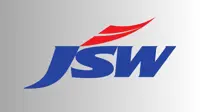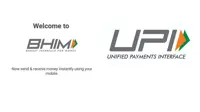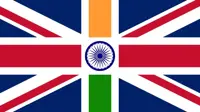RBI seeks public views on Bharat Bill Payment System
07 Aug 2014
The Reserve Bank of India (RBI) has sought public comments on the draft guidelines for implementation of the Bharat Bill Payment System (BBPS), which will cover retail payment transactions - a major component of the retail payment transactions in the country.
Over 30,800 million bills amounting to more than Rs600,000 crore are generated each year in the top 20 cities in the country and the payments are generally made in the form of cash and cheques, particularly at the billers' own collection points.
While the existing systems are safe and robust, RBI said, they do not fully address the needs of the consumers / customers to pay a variety of ''bills'', including utility bills, school / university fee, municipal taxes, etc, due to lack of interoperability in the bill payment processes as well as lack of access to various modes of electronic payments by a vast majority of customers.
There is, therefore, a felt need for an integrated bill payment system in the country that offers interoperable and accessible bill payment services to customers through a network of agents, allows multiple payment modes, and provides instant confirmation of payment. The bill payment system should also serve as an efficient, cost effective alternative to the existing systems, thus, setting the standards for bill payments in the country, and enhance consumer confidence and experience, RBI said.
The draft guidelines, put up on RBI's website today, outline the requirement and the basic tenets of operating the BBPS, and also prescribe the eligibility criteria, standards for settlement model and customer grievance redressal, roles and responsibilities and scope for entities desirous to be part of BBPS.
The Bharat Bill Payment System (BBPS) will function as a tiered structure for operating the bill payment system in the country with a single brand image providing convenience of 'anytime anywhere' bill payment to customers.
The BBPS aims to implement an integrated bill payment system in the country and offer interoperable and accessible bill payment service to customers through a network of agents, enabling multiple payment modes, and providing instant confirmation of payment. The existing players in the online commerce segment catering to the requirements of bill payments as well as aggregation of payment services in relation to bill payments will continue to be a part of BBPS.
The centralised bill payments infrastructure will have two types of entities carrying out distinct functions - entity operating the Bharat Bill Payment System (BBPS) which will, besides being the standard setting body, will inter-alia cover standards related to payment, clearing and settlement process and Bharat Bill Payment Operating Units (BBPOUs), which will be the authorised operational units, working on the standards set by the BBPS.
The tiered structure could be further strengthened through an effective establishment of agent network/s by the BBPOUs.
In future, the scope of BBPS could be extended to include services facilitating the collection of repetitive payments, such as school / university fees, municipal taxes / payments etc and also other e-commerce service content as decided from time to time by the Reserve Bank of India.
RBI said, existing entities providing bill payment services will have to meet the eligibility criteria and seek authorisation as outlined in the Bharat Bill Payment System.
In the second quarter Review of Monetary Policy 2012-13, RBI had announced the setting up of a committee to finalise the modalities of implementing an electronic GIRO payment system in India. The Payment Systems Vision for 2012-15 had also highlighted the presence of a huge bill payments market with diverse and complex billing and bill collection market structure, which varied across national/regional players and private/state owned entities. Moreover, there was no structured avenue available for smaller players to avail the facility nationally.
Based on the recommendations of the Committee, a Giro Advisory Group (GAG) under the Chairmanship of Professor Umesh Bellur, IIT Bombay, was constituted with the objective of defining a framework that enables the creation of pan-India touch points for bill payments by customers in the country irrespective of the geographical location of the billers. The GAG, after discussions and interaction with various stakeholders/ institutions from bill payments industry, submitted its report on 20 March 2014, which was placed on RBI website for comments.
























